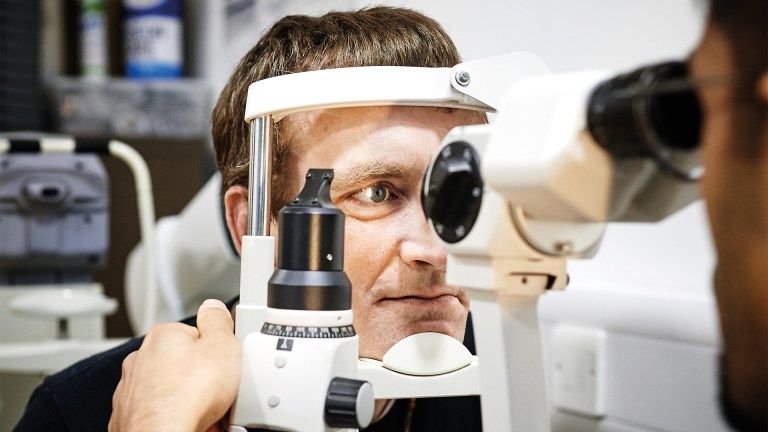The word ‘mindfulness’ might get bashed about a bit by Instagram gurus but, at its essence, it can be a really helpful mental health tool. It’s about giving your full attention to the present moment. Try taking things out of the box one by one, rather than everything all at once.
Remember you are stronger than you think. Think back to examples of your past resilience when you faced down the painful end of a relationship, were made redundant or had to sit that test. It’s likely that you pushed through, despite feeling anxious and ready to run. What skills did you harness to achieve it?
Lifestyle changes can make a big difference to your mental health
It might be a cliché but, one thing all the experts agree on is that enough sleep, daily exercise and decent food is a key way out of any mental health wobble.
It can be easy to slip into strange sleeping patterns if you can’t switch your mind off when your head hits the pillow. Try to get up at a normal time to keep your body clock in whack with the rest of the world, or risk feeling even more isolated. Additionally, going outside and moving for even just 20 minutes a day has been shown to reduce depression and low moods. Try listening to a podcast while walking if you feel like you need to distract yourself from your worries. Make sure your diet includes a range of fruit and vegetables and eat enough, but not too much.
Be kinder to yourself
The next tip is to adjust the volume of your internal critical voice. It may be the helpful voice that tells you to get out of bed in the morning, but if it’s blaring abuse at you all day long, saying you are rubbish and no-one likes you, it’s time to crank it down.
Try and think when you get a break from the thoughts that ruminate in your mind. The anxious, intrusive ones that go round and round in your head, especially at night. Thompson says, “Think of your brain as being online and offline and consider if it is offline enough to give yourself a break. If you notice that when you are going for a run or cooking the tea, you don’t tend to get them, then build on that.”
Your support changes lives. Find out how you can help us help more people by signing up for a subscription
Avoid isolation and don’t resist reaching out for mental health help
It might be hard and feel like the exact opposite of what you feel like doing but, if you can create a support network and lean on them in times of stress, research shows you have the best chance of recovery.
“People often think they can’t talk to friends about their problems, worried they’ll either bore or over-burden them, especially if they think they’ve heard it all before. But they’re wrong, it’s a privilege to help someone. People like to help, knowing they can ask for help in return”, says Thompson. If roles were reversed and your friend was in trouble, wouldn’t you want them to talk to you?
“Sharing what you’re going through can help you contain your difficult feelings rather than act them out by self-medicating with alcohol or drugs,” she adds. Don’t expect your network to be telepathic as they may be wrapped up in their own lives and won’t notice your struggle, despite how much they care about you.
“I’ve seen the relief come flooding into people if they are courageous enough to tell me about some of their darkest thoughts. If stored inside, the pressure and magnitude of the difficulties multiply. By inviting someone to really understand, I think people can be relieved of their anxieties and feel less alone. It doesn’t make the bad things go away, they may well still need a job or to pay the bills, but somehow they gain an energy to think about their problems from a new angle.”
If all else fails, and you feel worried, see your GP and think about some talking therapy.
Headlines about NHS backlogs and striking doctors can be off putting but if you feel like you should go, you should. Mental health is as important as physical health and you deserve to feel better.
Do you have a story to tell or opinions to share about this? We want to hear from you. Get in touch and tell us more.










